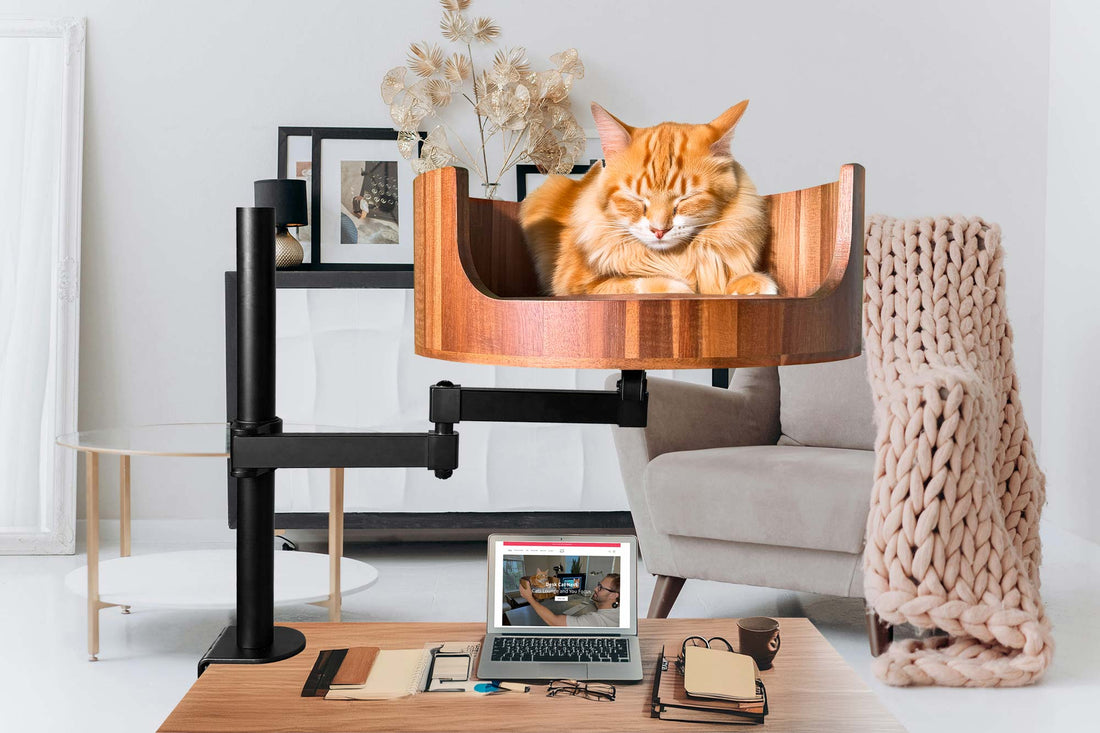
Why Does My Cat Meow Quietly? Understanding Feline Sounds
Share
Do you ever wonder why your cat meows quietly? As cat owners, we all know how our feline friends communicate through various sounds, but sometimes it can be confusing to decipher what they're trying to tell us. In this article, we'll explore the reasons behind why cats meow quietly and what it could mean for their behavior and well-being.
From the soft chirps of a content cat lounging in their favorite sunspot to the barely audible mews of a feline looking for attention, cats use a wide range of vocalizations to convey their needs and emotions. Understanding these sounds is key to building a strong bond with your furry companion and meeting their needs effectively. By delving into the world of feline communication, we can gain insight into why our cats meow quietly and how we can better respond to their calls. So, if you've ever found yourself wondering why your cat is meowing so softly, keep reading to learn more about the mysterious language of feline sounds.
1. Cats often meow quietly as a form of communication, signaling contentment, or the desire for attention.
2. Understanding the context in which a cat meows quietly is crucial in deciphering their message.
3. Health issues, stress, or aging can also cause a cat to meow quietly, indicating a potential underlying problem.
4. Cats may meow quietly during play or when seeking affection, showing their emotional state in a subtle way.
5. By paying attention to your cat's body language and surrounding environment, you can better interpret their quiet meows and respond accordingly.
Understanding Feline Vocalizations
Cats communicate through a variety of vocalizations, each serving a different purpose. Meowing is a common way for cats to get their owner's attention or express their needs. While most cats meow loudly, some may meow quietly due to various reasons such as their personality, health issues, or age. Understanding the reasons behind your cat's quiet meows can help you better cater to their needs.
Personality Traits and Quiet Meowing
Just like humans, cats have unique personalities that influence their communication style. Introverted or shy cats may be more likely to meow quietly as they prefer to fly under the radar. On the other hand, extroverted and confident cats may meow loudly to get their point across. Observing your cat's behavior and how they interact with you can provide insights into their preferred communication style.
Health Issues and Quiet Meowing
If your cat suddenly starts meowing quietly or exhibits changes in their vocalizations, it could be a sign of health issues. Cats are experts at hiding pain or discomfort, so a change in their meowing behavior should not be ignored. Dental issues, respiratory problems, or thyroid imbalances can all affect a cat's vocalizations. It is essential to monitor your cat's overall health and consult with a veterinarian if you notice any concerning changes.
Age-related Changes in Vocalizations
As cats age, their vocalizations may change due to natural aging processes or underlying health concerns. Senior cats may meow more quietly due to reduced muscle tone in their vocal cords or hearing loss. Keep in mind that age-related changes in vocalizations are normal, but it is crucial to monitor your cat's overall health and well-being as they grow older. Regular check-ups with a veterinarian can help catch any age-related issues early on.
Desk Cat Nest FAQ
Why does my cat meow quietly?
There are several reasons why your cat may be meowing quietly. It could be due to age-related changes in their vocal cords, a sign of pain or illness, a way to communicate anxiety or fear, or simply a personality trait. If your cat's quiet meowing is a new behavior, it's best to consult with a veterinarian to rule out any health issues.
Will the Desk Cat Nest help with my cat's quiet meowing?
While the Desk Cat Nest provides a cozy and comfortable space for your cat, it may not directly address the root cause of your cat's quiet meowing. However, having a safe and secure space like the Desk Cat Nest may help reduce anxiety or stress in your cat, which could potentially lead to a decrease in quiet meowing.
How can I encourage my cat to use the Desk Cat Nest?
Introducing your cat to the Desk Cat Nest gradually and making it a positive experience can help encourage them to use it. Place their favorite toys or treats inside the nest, use a pheromone spray to create a calming environment, and provide praise and rewards when they use the nest. Patience and consistency are key in getting your cat to enjoy their new space.
Is the Desk Cat Nest easy to clean?
Yes, the Desk Cat Nest is designed to be easy to clean. The removable cushion can be machine-washed or hand-washed, and the nest itself can be wiped down with a damp cloth. Regular cleaning and maintenance will help keep the nest fresh and comfortable for your cat.
In conclusion, providing your cat with a Desk Cat Bed can help alleviate their tendency to meow quietly. This cozy and comfortable bed offers a safe space for your feline friend to relax and feel secure, reducing anxiety and stress that can lead to excessive vocalization. With its plush padding and privacy-ensuring design, the Desk Cat Bed promotes a sense of calmness and contentment in your pet, ultimately resulting in less frequent and quieter meowing. By investing in a Desk Cat Bed, you are not only enhancing your cat's well-being but also creating a harmonious environment for both you and your beloved companion.



















































